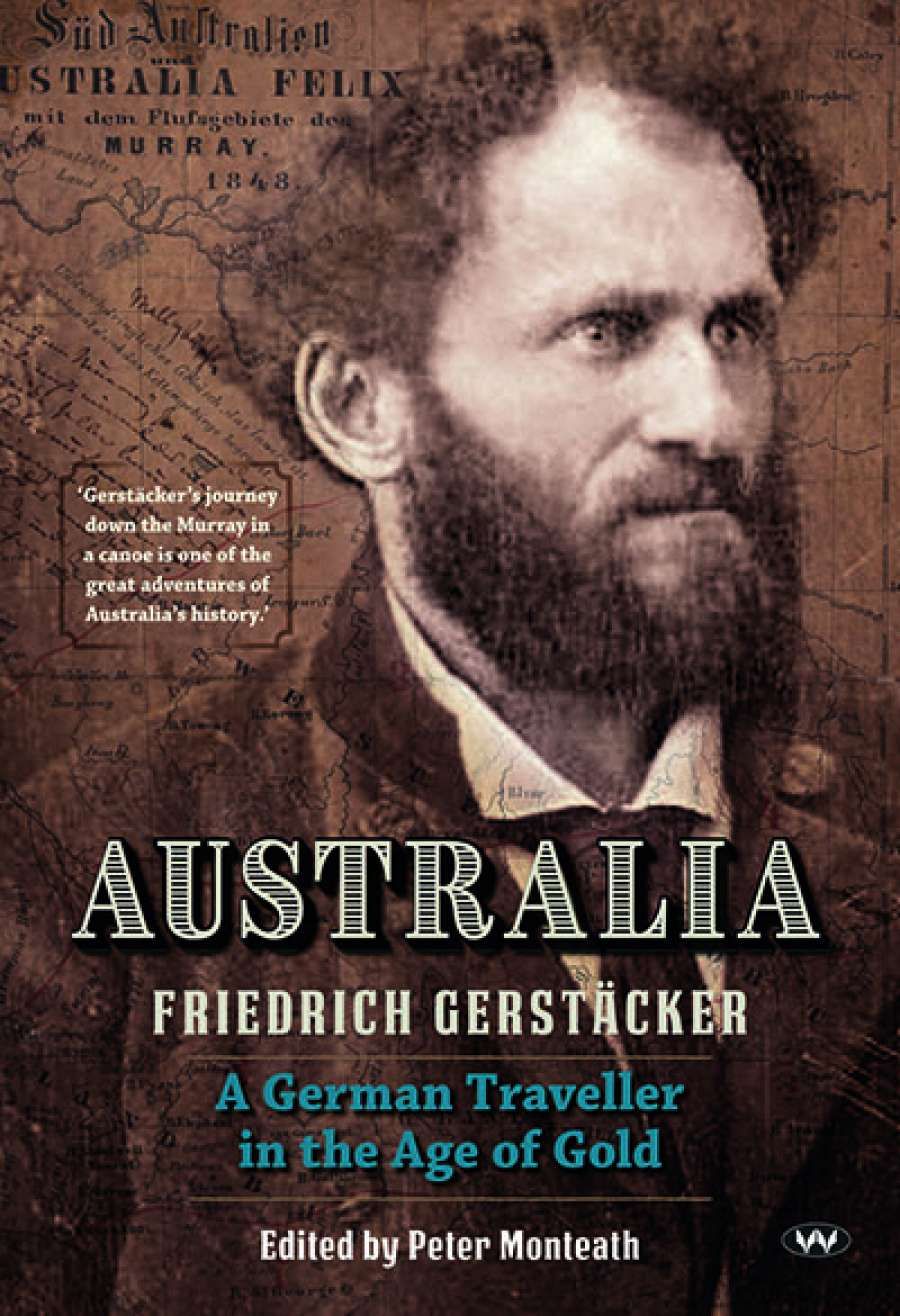
- Free Article: No
- Contents Category: History
- Custom Article Title: Christopher Menz reviews 'Australia: A German traveller in the age of gold' by Friedrich Gerstäcker
- Custom Highlight Text:
Formerly only known to historians and specialists, either in the original German or the author's abridged translation, Friedrich Gerstäcker's Australian travelogue (1854), based on ...
- Book 1 Title: Australia
- Book 1 Subtitle: :A German traveller in the age of gold
- Book 1 Biblio: Wakefield Press $34.95 pb, 317 pp, 9781743054192
Gerstäcker, born in Hamburg, was an intrepid nineteenth-century traveller. He journeyed from his native Germany to the Americas, Australia, and Polynesia, and became a successful travel writer. In his Australian volume, he makes many interesting comparisons with the United States, which he knew well and had just left.
Gerstäcker's Australian journey begins and ends in Sydney. His account of that city forms a valuable record on how the gold rushes transformed it in a matter of months. However, it is his journey down the Murray River to South Australia, where he wanted to visit the newly settled German communities near Adelaide, which is the most fascinating part. His travel by coach from Sydney to Albury was most uncomfortable and makes hilarious reading ('I had jammed my right knee between my beautiful and ugly neighbours'). Part of his epic journey along the Murray was by canoe; when that failed he went on foot, much of it alone. He had many encounters with Riverland Aborigines, and his descriptions here tell us much about the patronising and fearful European attitudes of the time.
Gerstäcker has many wry and several caustic observations about Australia; he notes that the Murray 'empties into Encounter Bay via a large lagoon which is called Lake Alexandrina or Lake Victoria (because the English name practically any puddle in Australia after their queen)'. He describes the port at Adelaide: 'one can hardly imagine a dirtier and more insignificant dump than this Port Adelaide'. The Sydney of 1851 fares slightly better: it 'measures perfectly well to a third rate city in England'.


Comments powered by CComment